About Gulf Bend Center
Gulf Bend Center is a regional integrated behavioral health provider with locations spread across seven counties in the Golden Crescent area of Texas. At their center in Victoria, Texas, they offer crisis intervention, mental health support, substance use treatment and smoke cessation services. They can handle co-occurring disorders as well.
Addiction Recovery in Victoria
Their facility in Victoria County is situated along Nursery Drive in the northwestern city of Victoria. It is positioned near US Route 77 with direct access to downtown Victoria. The facility also serves patients from nearby Port Lavaca and Cuero via the US Route 87 corridor. Victoria Transit operates limited bus routes within this area.
Tailored Substance Use Recovery
Gulf Bend Center takes a holistic approach to helping adults and adolescents achieve and maintain sobriety. Patients benefit from the support of an interdisciplinary team of experts that treats them with respect and dignity as they navigate recovery. You’ll be screened during the initial assessment. Once you meet the eligibility criteria for outpatient therapy, the care team will create a personalized care plan tailored to your wants and needs.
Otherwise, they’ll refer you to inpatient facilities and rehabilitation or other levels of care that are more appropriate for your needs. During your outpatient treatment here, you’ll attend individual and group counseling sessions to gain practical coping and relapse prevention tools. They also offer education classes on substance use disorders and treatment options. The program encourages the involvement of family and friends to strengthen your support network.
Medication Support for Opioid Addiction
You may also receive medication assisted treatment (MAT) particularly if you’re dealing with opioid use issues. The technique uses FDA approved meds to help you curb cravings and alleviate withdrawal symptoms. It usually includes counseling to achieve holistic recovery and lasting abstinence. Folks with co-occurring conditions receive integrated support combining addiction recovery and psychiatric care. The latter encompass psychiatric evaluation, psyche medication prescriptions and medication management.
They’ll connect you to community services that support your complete healing via case management as you move forward. These services may include housing assistance, job placement and medical care. Your case manager may also refer you to self-help groups like AA or NA.
Help with Quitting Smoking
Gulf Bend Center can help you in addressing unhealthy dependency on nicotine and tobacco. This aligns with their broader goal of improving the well-being of community residents. They offer tobacco assessments and individual counseling to help you investigate the underlying causes of your nicotine dependence while working out practical skills to help you quit.
They also offer education on the dangers of tobacco use and products to aid in your decision to quit. Additionally, they can provide FDA approved meds to help you manage nicotine withdrawal and the urge to smoke.
Latest Reviews
Rehab Score
Gallery
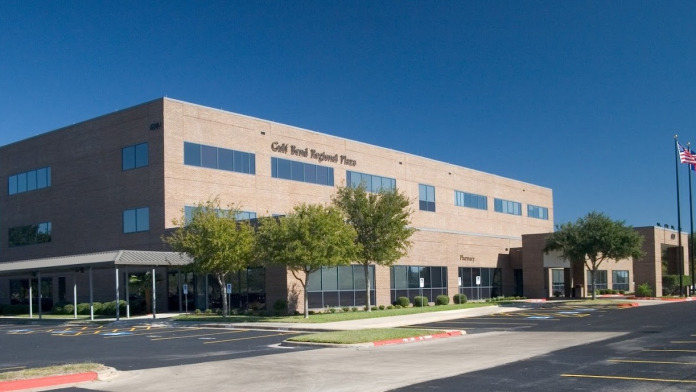
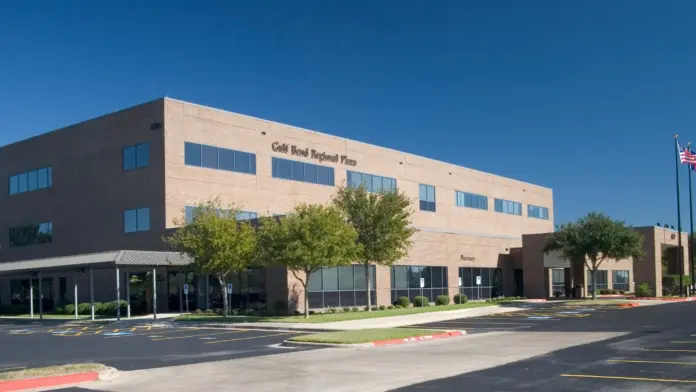
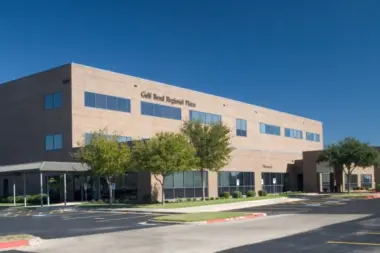
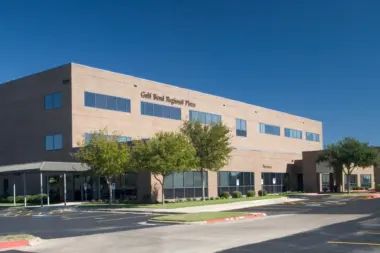
Other Forms of Payment
Private insurance refers to any kind of healthcare coverage that isn't from the state or federal government. This includes individual and family plans offered by an employer or purchased from the Insurance Marketplace. Every plan will have different requirements and out of pocket costs so be sure to get the full details before you start treatment.
Self-pay involves paying for treatment out of your own pocket. You can use savings or credit, get a personal loan, or receive help from family and friends to fund your treatment. If you don't have insurance or your insurance plan doesn't cover a specific program, self-pay can help ensure you still get the care you need.
Medicare is a federal program that provides health insurance for those 65 and older. It also serves people under 65 with chronic and disabling health challenges. To use Medicare for addiction treatment you need to find a program that accepts Medicare and is in network with your plan. Out of pocket costs and preauthorization requirements vary, so always check with your provider.
Military members, veterans, and eligible dependents have access to specific insurance programs that help them get the care they need. TRICARE and VA insurance can help you access low cost or no cost addiction and mental health treatment. Programs that accept military insurance often have targeted treatment focused on the unique challenges military members, veterans, and their families face.
Medicaid is a state based program that helps lower-income individuals and families pay for healthcare. Medicaid covers addiction treatment so those enrolled can use their coverage to pay for rehab. When a program accepts Medicaid the client often pays very little or nothing out of their own pocket.
Addiction Treatments
Levels of Care
Outpatient Programs (OP) are for those seeking mental rehab or drug rehab, but who also stay at home every night. The main difference between outpatient treatment (OP) and intensive outpatient treatment (IOP) lies in the amount of hours the patient spends at the facility. Most of the time an outpatient program is designed for someone who has completed an inpatient stay and is looking to continue their growth in recovery. Outpatient is not meant to be the starting point, it is commonly referred to as aftercare.
Treatments
Many of those suffering from addiction also suffer from mental or emotional illnesses like schizophrenia, bipolar disorder, depression, or anxiety disorders. Rehab and other substance abuse facilities treating those with a dual diagnosis or co-occurring disorder administer psychiatric treatment to address the person's mental health issue in addition to drug and alcohol rehabilitation.
Mental health rehabs focus on helping individuals recover from mental illnesses like bipolar disorder, clinical depression, anxiety disorders, schizophrenia, and more. Mental health professionals at these facilities are trained to understand and treat mental health issues, both in individual and group settings.
Programs
Adult rehab programs include therapies tailored to each client's specific needs, goals, and recovery progress. They are tailored to the specific challenges adult clients may face, including family and work pressures and commitments. From inpatient and residential treatment to various levels of outpatient services, there are many options available. Some facilities also help adults work through co-occurring conditions, like anxiety, that can accompany addiction.
Young adulthood can be an exciting, yet difficult, time of transition. Individuals in their late teens to mid-20s face unique stressors related to school, jobs, families, and social circles, which can lead to a rise in substance use. Rehab centers with dedicated young adult programs will include activities and amenities that cater to this age group, with an emphasis on specialized counseling, peer socialization, and ongoing aftercare.
Clinical Services
Cognitive Behavioral Therapy (CBT) is a therapy modality that focuses on the relationship between one's thoughts, feelings, and behaviors. It is used to establish and allow for healthy responses to thoughts and feelings (instead of unhealthy responses, like using drugs or alcohol). CBT has been proven effective for recovering addicts of all kinds, and is used to strengthen a patient's own self-awareness and ability to self-regulate. CBT allows individuals to monitor their own emotional state, become more adept at communicating with others, and manage stress without needing to engage in substance abuse.
Group therapy is any therapeutic work that happens in a group (not one-on-one). There are a number of different group therapy modalities, including support groups, experiential therapy, psycho-education, and more. Group therapy involves treatment as well as processing interaction between group members.
In individual therapy, a patient meets one-on-one with a trained psychologist or counselor. Therapy is a pivotal part of effective substance abuse treatment, as it often covers root causes of addiction, including challenges faced by the patient in their social, family, and work/school life.
Trauma therapy addresses traumatic incidents from a client's past that are likely affecting their present-day experience. Trauma is often one of the primary triggers and potential causes of addiction, and can stem from child sexual abuse, domestic violence, having a parent with a mental illness, losing one or both parents at a young age, teenage or adult sexual assault, or any number of other factors. The purpose of trauma therapy is to allow a patient to process trauma and move through and past it, with the help of trained and compassionate mental health professionals.
Whether a marriage or other committed relationship, an intimate partnership is one of the most important aspects of a person's life. Drug and alcohol addiction affects both members of a couple in deep and meaningful ways, as does rehab and recovery. Couples therapy and other couples-focused treatment programs are significant parts of exploring triggers of addiction, as well as learning how to build healthy patterns to support ongoing sobriety.
When used as recommended, nicotine replacement therapy in Texas provides enough nicotine to help you avoid severe cravings and withdrawal symptoms after quitting smoking. This increases comfort so you're less likely to relapse into your smoking habit.
Staff
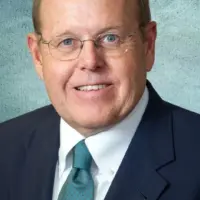
Jeffrey Tunnel
Executive Director

Nicole Way
COO
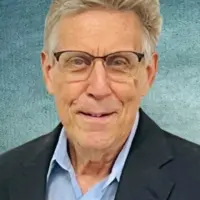
Lane Johnson, M.Div, LPC-S
Chief Clinical officer
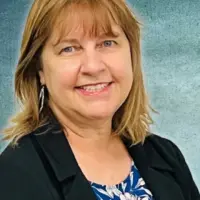
Yvette Hausmann
Directo of Human Resources
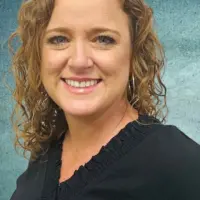
Kasie Mundine
CFO

Glenn Zengerle
Chief Business Services Officer
Contact Information
6502 Nursery Drive
Suite 100
Victoria, TX 77904